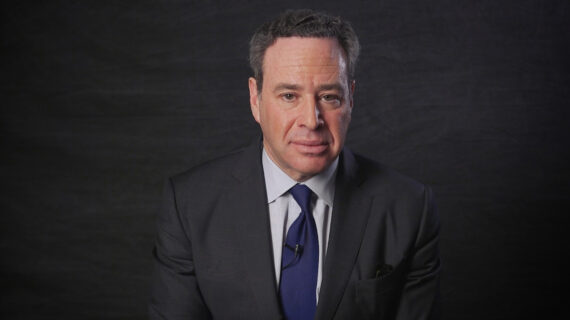Last month, I wrote for The Hub about the complicated and changing opinion polls of Palestinians who reside in Gaza and the West Bank. The article was published in the middle of the temporary ceasefire. As tensions have since resumed, new polling from the region provides a further window into the extent to which the conflict may be strengthening Palestinian support for Hamas.
On December 13, the independent, non-profit think tank, the Palestinian Center for Policy and Survey Research, released a new survey, in conjunction with the Konrad-Adenauer-Stiftung in Ramallah, of residents in Gaza and the West Bank. Conducted between November 22 and December 2nd, the poll’s findings show some troubling trends that impact not only Palestinians and Israelis but the region as a whole.
Over two months into the conflict, a plurality (43 percent) of respondents in Gaza and the West Bank now say that they support Hamas, a near doubling (22 percent) since prior to October 7. Support in the West Bank has actually more than tripled from 12 percent to 44 percent. In Gaza, support has climbed to 42 percent from 38 percent three months earlier.
The Palestinian Authority’s ruling party, Fatah, by contrast, has seen its support significantly fall to just 17 percent including a ten-percentage point drop (26 percent to 16 percent) in the West Bank and a 7-percentage point decline (from 25 percent to 18 percent) in Gaza. Further, 88 percent of Palestinians say they want President Mahmoud Abbas to resign, a 10 percentage-point increase since September 2023.
If elections were held today, 51 percent say that they would vote for Hamas while only 19 percent would vote for Fatah. This represents a major swing from three months earlier when support for Hamas and Fatah was essentially equal (34 percent for Hamas and 36 percent for Fatah).
Regarding the October 7th attacks themselves, the polling finds that an overwhelming majority (85 percent) of respondents say they haven’t seen the evidence and footage circulating on international and social media of Hamas’ actions against Israeli civilians. A large majority (90 percent) also says that it doesn’t believe that Hamas committed atrocities shown in the video footage.
Turning towards Israel’s military campaign, over half (53 percent) say that Israel’s goal is to destroy the Gaza Strip and kill or expel the population, while 42 percent say the goal is to have revenge against and destroy Hamas. Regarding the outcome of Israel’s military campaign, a large majority (70 percent) think that Hamas will not be eradicated, while 21 percent say that they will only be weakened by Israel.
In Gaza, as humanitarian conditions, including the rise of infectious diseases, worsen, 52 percent blame Israel, and 26 percent blame the U.S. for the current suffering of Gazans. Only 11 percent blame Hamas.
Discussions have been circulating around the idea of a post-conflict arrangement whereby the Palestinian Authority might take over control in Gaza and run it alongside the West Bank. Support for this idea is currently low. Only 28 percent of Palestinians in the West Bank (20 percent) and Gaza (39 percent) would support the Palestinian Authority assuming control of both the West Bank and Gaza.
Additionally, a large majority (70 percent) would reject a deployed Arab security contingent to Gaza, a sentiment also shared by Arab leaders at the recent Doha Forum.

There may be limits to these types of polls. There has been speculation for instance that Palestinians are afraid to speak up or accurately express themselves against Hamas because of their influence and fear of retaliation. There are also questions about the durability of Hamas’s support. The Palestinian Center for Policy and Survey Research’s director, Khalil Shikaki, observes that the historic trend is that Hamas’s popular support tends to rise during times of conflict.
In overall terms, though, Hamas’ support appears to only be strengthening, taking advantage of current conditions to exert their influence, especially in the West Bank. Israeli allies are most likely taking notice, including U.S. President Joe Biden who has previously warned that settler violence in the West Bank can give Hamas the upper hand due to these escalations. He’s also recently warned Prime Minister Netanyahu about Israel’s military campaign in Gaza and the risk of losing global support.
The poll therefore provides important context for Israel’s ongoing campaign, its allies’ support, and the political conditions in Palestine itself. It’s a reminder of the complexity of these issues and the inherent challenge to finding a durable post-conflict peace.




